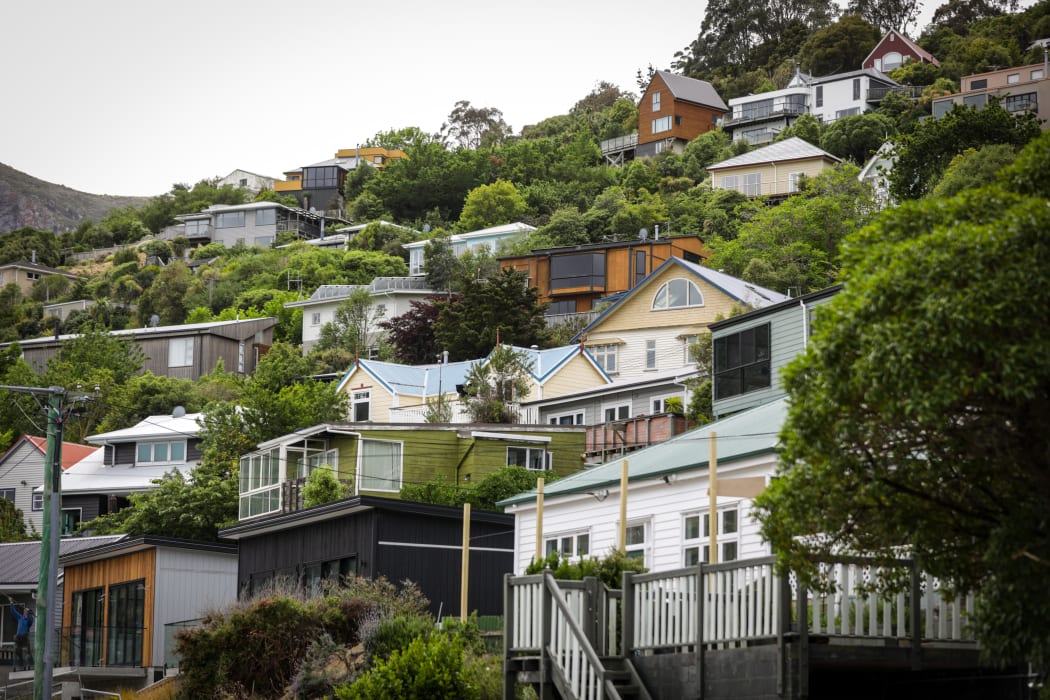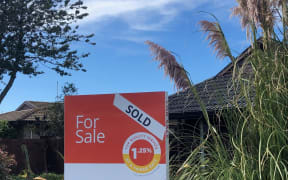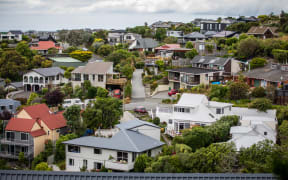The slowdown in the housing market is becoming more pronounced, with prices going backwards in some places.

The annual rise in house prices was still more than 23 percent, reflecting last year's surge, but the quarterly growth was just 3.6 percent. Photo: RNZ / Nate McKinnon
A cocktail of higher interest rates, stricter lending rules, lack of affordability, and more cautious households, has seen house price growth at its lowest point in 19 months.
CoreLogic's House Price Index was 0.7 percent up in March against a 0.8 percent gain in February, with the national average house price at $1.04 million.
The annual rise was still more than 23 percent, reflecting last year's surge, but the quarterly growth was just 3.6 percent.
CoreLogic head of research Nick Goodall said it was the lowest rate of growth since September 2020, and the market had clearly peaked at the end of last year.
He put that down to the combined effect of affordability, rising interest rates, tighter lending conditions caused by the Credit Contracts and Consumer Finance Act (CCCFA), which is now being reviewed, and a growing wariness of owner occupiers.
"After such a significant upswing in values, some of the areas which saw the greatest deterioration in affordability are now also at risk of the greatest vulnerability.
"The impact of tightening credit and increasing interest rates has reduced the pool of buyers who are willing and able to pay recent prices and this has led to a reduced number of property transactions," he said.
There were noticeable dips in Hamilton, Rotorua, Wellington and Dunedin, but he doubted there would be a major correction, Goodall said.
House prices fell or were unchanged in eight of the 15 regional centres CoreLogic tracks.
Rotorua experienced the greatest dip in March, with prices falling 2.1 percent.
There was concern voiced about the vulnerability of recent first home buyers and rising mortgage rates, but the key would be the state of the economy, and in particular the labour market, he said.
"If unemployment stays anywhere near as low as it currently is, then the likelihood of motivated or forced sales should remain low, helping to guard against a severe downturn."
It was possible property investors would decide to sell up in greater numbers adding to supply, Goodall said.





